
John Stuart Mill was an English philosopher, political economist, Member of Parliament (MP) and civil servant. One of the most influential thinkers in the history of classical liberalism, he contributed widely to social theory, political theory, and political economy. Dubbed "the most influential English-speaking philosopher of the nineteenth century", he conceived of liberty as justifying the freedom of the individual in opposition to unlimited state and social control.
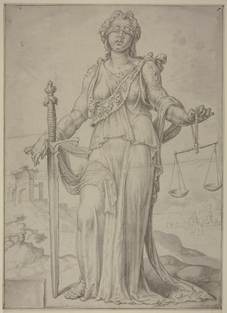
Justice, in its broadest sense, is the principle that people receive that which they deserve, with the interpretation of what then constitutes "deserving" being impacted upon by numerous fields, with many differing viewpoints and perspectives, including the concepts of moral correctness based on ethics, rationality, law, religion, equity and fairness. The state will sometimes endeavour to increase justice by operating courts and enforcing their rulings.

American Motors Corporation was an American automobile manufacturing company formed by the merger of Nash-Kelvinator Corporation and Hudson Motor Car Company on May 1, 1954. At the time, it was the largest corporate merger in U.S. history.

Henry Ford II, sometimes known as "HF2" or "Hank the Deuce", was an American businessman in the automotive industry. He was the eldest son of Edsel Ford I and eldest grandson of Henry Ford I. He was president of the Ford Motor Company from 1945 to 1960, chief executive officer (CEO) from 1947 to 1979, and chairman of the board of directors from 1960 to 1980. Under the leadership of Henry Ford II, Ford Motor Company became a publicly traded corporation in 1956. From 1943 to 1950, he also served as president of the Ford Foundation.
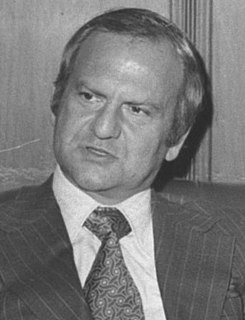
Lido Anthony "Lee" Iacocca was an American automobile executive best known for the development of the Ford Mustang and Ford Pinto cars while at the Ford Motor Company in the 1960s, and for reviving the Chrysler Corporation as its CEO during the 1980s. He was president and CEO of Chrysler from 1978 and chairman from 1979, until his retirement at the end of 1992. He was one of the few executives to preside over the operations of two of the Big Three automakers.

Equality of outcome, equality of condition, or equality of results is a political concept which is central to some political ideologies and is used in some political discourse, often in contrast to the term equality of opportunity. It describes a state in which all people have approximately the same material wealth and income, or in which the general economic conditions of everyone's lives are alike.
Equal opportunity is a state of fairness in which individuals are treated similarly, unhampered by artificial barriers, prejudices, or preferences, except when particular distinctions can be explicitly justified. The intent is that the important jobs in an organization should go to the people who are most qualified – persons most likely to perform ably in a given task – and not go to persons for reasons deemed arbitrary or irrelevant, such as circumstances of birth, upbringing, having well-connected relatives or friends, religion, sex, ethnicity, race, caste, or involuntary personal attributes such as disability, age, gender identity, or sexual orientation.
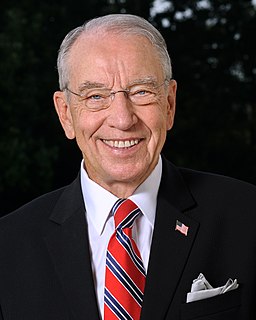
Charles Ernest Grassley is an American politician serving as the president pro tempore emeritus of the United States Senate, and the senior United States senator from Iowa, having held the seat since 1981. He is in his seventh Senate term, having first been elected in 1980.
Equality feminism is a subset of the overall feminism movement and more specifically of the liberal feminist tradition that focuses on the basic similarities between men and women, and whose ultimate goal is the equality of the sexes in all domains. This includes economic and political equality, equal access within the workplace, freedom from oppressive gender stereotyping, and an androgynous worldview.

A car platform is a shared set of common design, engineering, and production efforts, as well as major components over a number of outwardly distinct models and even types of cars, often from different, but somewhat related marques. It is practiced in the automotive industry to reduce the costs associated with the development of products by basing those products on a smaller number of platforms. This further allows companies to create distinct models from a design perspective on similar underpinnings.

Chrysler's TC by Maserati is a jointly developed car by Chrysler and Maserati. It was positioned as a grand tourer and introduced at the 1986 Los Angeles Auto Show. It is a "Q" body built on a modified second generation Chrysler K platform. After two years of development delays, the TC became available in late-1988 and a total of 7,300 units were manufactured in Milan, Italy through 1990. All cars sold as 1991 models were manufactured in 1990.

Robert Anthony Lutz is a Swiss American automotive executive. He served as a top leader of all of the United States Big Three automobile manufacturers, having been in succession executive vice president of Ford Motor Company, president and then vice chairman of Chrysler Corporation, and vice chairman of General Motors.

Sergio Marchionne was an Italian-Canadian businessman, widely known for his turnarounds of the automakers Fiat and Chrysler, his business acumen and his outspoken and often frank approach, especially when dealing with unpalatable issues related to his companies and the automotive industry.

Margaret Levi is an American political scientist and author, noted for her work in comparative political economy, labor politics, and democratic theory, notably on the origins and effects of trustworthy government.
A Just society is one in which each person is socially and economically secure, and where the state is politically, legally, and administratively inclusive and fair.
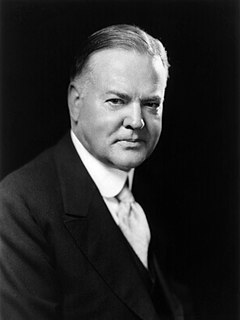
A number of top executives in large businesses and governments have worked for a one-dollar salary. One-dollar salaries are used in situations where an executive wishes to work without direct compensation, but for legal reasons must receive a payment above zero, so as to distinguish them from a volunteer. The concept first emerged in the early 1900s, where various leaders of industry in the United States offered their services to the government during times of war. Later, in the late 1990s and early 2000s, many business executives began accepting one-dollar salaries—often in the case of struggling companies or startups—with the potential for further indirect earnings as the result of their ownership of stock.
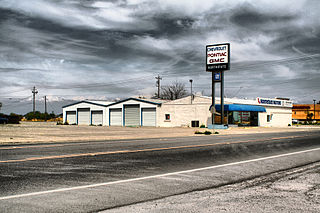
Beginning in the later half of 2008, a global-scale recession adversely affected the economy of the United States. A combination of several years of declining automobile sales and scarce availability of credit led to a more widespread crisis in the United States auto industry in the years of 2008 and 2009.

Chrysler, a large automobile manufacturer, was founded in the 1920s and continues today under the name Stellantis North America. The history of Chrysler involves engineering innovations, high finance, wide alternations of profits and losses, various mergers and acquisitions, and multinationalization.
The Canadian auto industry is closely linked to the U.S., due to the Automotive Products Trade Agreement and later the North American Free Trade Agreement (NAFTA), and is in similar trouble. Canada's 3,500 car dealers, which employ 140,000 people, told the federal and Ontario governments in mid-November they are at risk from the financial crisis; they are asking the national government to help out despite a record year of sales. Ottawa is considering providing financial aid to the Canadian subsidiaries of the Big Three, and possibly auto parts companies as well. The auto industry argued that loan guarantees and other help would try to save tens of thousands of Canadian jobs threatened by the sudden drop in North American car sales. Chrysler Canada has asked for $1 billion in aid, making it the only Canadian arm of the Big Three to make a specific dollar request.
Compensation and benefits (C&B) is a sub-discipline of human resources, focused on employee compensation and benefits policy-making. While compensation and benefits are tangible, there are intangible rewards such as recognition, work-life and development. Combined, these are referred to as total rewards. The term "compensation and benefits" refers to the discipline as well as the rewards themselves.















